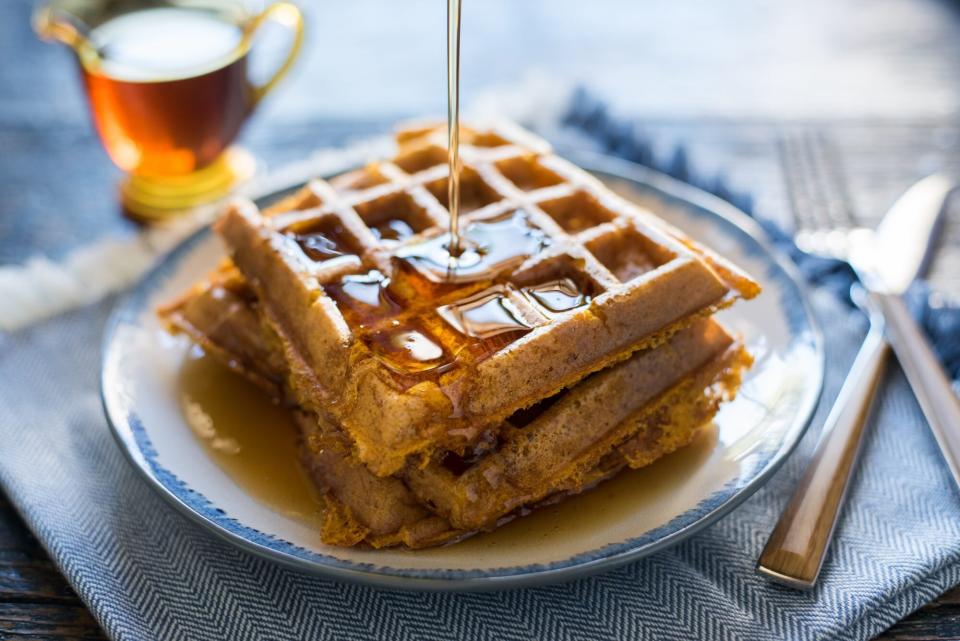What Is Birch Syrup? Here's Everything You Need to Know About It, Including How It Compares to Maple Syrup
When you need a topping for a stack of pancakes at breakfast, you probably reach for maple syrup, but that's not the only way to use this popular tree syrup. It can serve as a drink sweetener and even an ingredient in a vinaigrette to dress your salad. The same (and more) can be said for another tree syrup: birch. Birch syrup is a sugar syrup made by concentrating sap from birch trees. While the flow season of maple syrup ends in the spring, birch sap flow season begins in late spring. "The sap is harvested in a similar manner as is done for maple syrup production—holes are drilled in the tree, and sap is collected either in buckets, bags, or a tubing collection system," says Dr. Abby van den Berg, PhD, a research associate professor at the University of Vermont. "That sap is then concentrated by heat-driven evaporation, very similar to how maple syrup is made, and usually using maple syrup equipment [like a synthetic filter and evaporator]."

Michelle Arnold / EyeEm / Getty Images
While maple and birch syrup productions have their similarities, the flavor of these two types of syrup are actually quite different. Ahead, Dr. van den Berg explains the makeup of birch syrup and how you can use it in cooking.
Related: How One Family Makes (And Cooks With!) Their Own Maple Syrup
The Contents of Birch Syrup
After sap is harvested from the tree, it contains about one percent sugar. The syrup is then cooked down to around 67 percent sugar. "While it is fundamentally a sugar syrup, because it is not highly refined like table sugar, it can contain other components, like minerals and phenolic compounds," says Dr. van den Berg. "Also, the primary type of sugar in birch syrup is invert sugar (glucose and fructose), whereas the primary type in maple syrup is sucrose." This gives birch syrup different properties in culinary and confectionary processes, meaning it could make the crystallization when making desserts like fudge or frosting slower than the standard process. However, it could help make baked goods stay fresh longer since it is hygroscopic (absorbs moisture).
Can You Use Birch Syrup in Place of Maple Syrup?
"While the process of making birch syrup is very similar to that of maple syrup production, the two products are very different," Dr. van den Berg says. She explains that the flavor profile of birch syrup is unlike that of maple syrup. Fans of birch syrup describe its flavor as featuring molasses and brown sugar notes, and having cherry and raspberry flavors in its finish.
Maple syrup, on the other hand, has sweet notes that favor vanilla and caramel. "The tart fruit and molasses notes make birch syrup well-suited to a wide range of culinary applications, as an ingredient in both savory and sweet dishes, beverages, sauces, and confections," she adds. Birch syrup—like Botanical Springs Birch Syrup ($15, botanicalsprings.buzz)—is still a great topping for pancakes, but it's also an apt marinade for grilled meat as well as an easy swap for maple syrup in ciders, baked breads, and tangy, sweet sauces, depending on the finished flavor you desire. As for which flavor tastes better? "Maple syrup and birch syrup are completely different products, so neither is 'better' than the other; they each have their own unique and desirable qualities," explains Dr. van den Berg.

